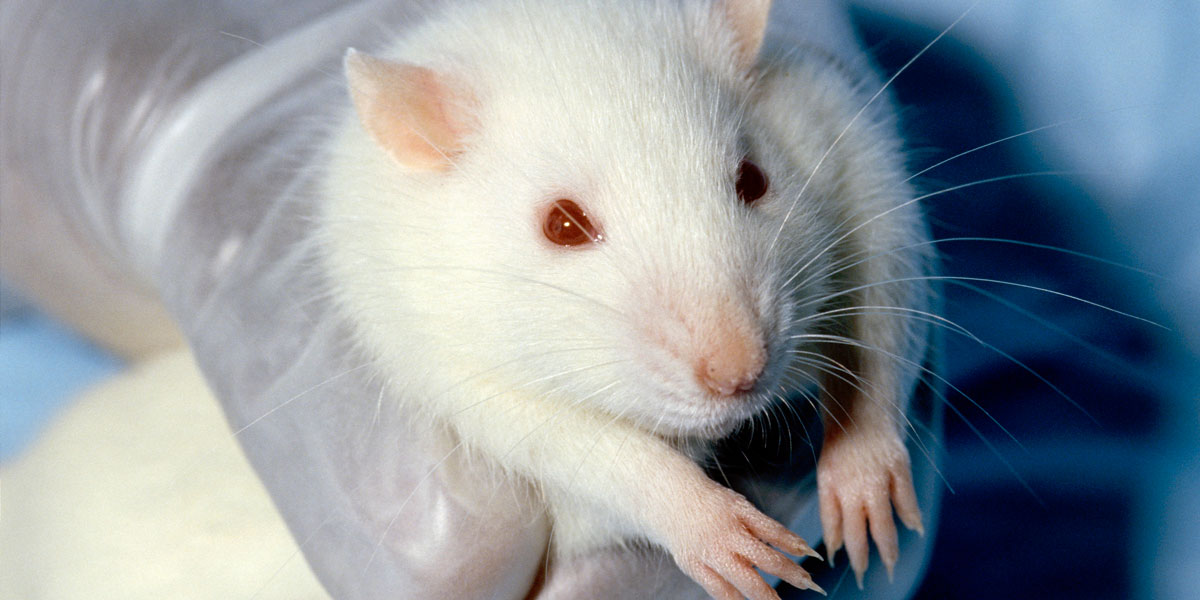
If the experts from the GRACE and G-TwYST animal feeding projects get their way, industry will never again have to answer concerns raised by animal feeding trials with GMOs, writes Claire Robinson
Two EU-funded animal feeding projects with GM foods, GRACE and G-TwYST, are intended to inform the further development of Europe’s GMO regulations. They will help lawmakers decide which type of animal feeding trials are required, or indeed whether they should be required at all.
The first of these two projects, GRACE, has already become mired in controversy over its failure to declare relevant conflicts of interest in the experts involved, as well as its apparent attempt to airbrush away data indicating health impacts in rats fed a GM diet.
Now members of the GRACE and G-TwYST research teams have published a paper, “Proposed criteria for the evaluation of the scientific quality of rat and mouse feeding trials with whole food/feed derived from genetically modified plants”, in the journal Archives of Toxicology. They are inviting “stakeholders” to contribute to further developing these criteria by sending comments.
In fact, the paper is not so much a discussion piece as a clear policy statement in favour of abolishing animal feeding trials with GMOs.
The paper states:
“Only in case a trigger is available from the initial molecular, compositional, phenotypic and/or agronomic analyses and therefore the rationale of the study prior to testing is formulated in form of hypotheses regarding specific endpoints, feeding trials with whole food/feed may provide an added scientific value for the risk assessment of GM crops.”
In other words, the authors are implying that animal feeding trials with GMOs are not necessary except when pre-existing tests by the company (e.g. gross compositional tests analysing fat, carbohydrate, etc.) produce results that suggest that they would be needed.
The trouble with this approach is that industry analyses invariably find that the GM crop is substantially equivalent to the non-GM parent crop. So the GRACE/G-TwYST approach, if implemented in the past, would have ensured that no animal feeding trials on GM crops were ever carried out by industry.
Let’s assume for the sake of argument that through some bizarre oversight, industry’s own data do indicate that animal feeding trials might be needed with a particular GMO. Based on the quote above and other elements of the new report, if the GRACE/G-TwYST experts get their way, things will get very murky indeed for public health. Generic non-specific toxicity tests will not be required or accepted by regulators, even though long-term rigorously controlled experiments of this type are the best way to find unexpected toxicity from a food.
Instead specific hypotheses will have to be put forward and tested. Such an approach is by definition extremely narrow. It will focus in on very limited endpoints – perhaps even endpoints that industry already knows will show ‘no effect’.
The approach promoted by the G-TwYST experts will guarantee that nothing will be found except that which is expected to be found. Unexpected toxicity could pass unnoticed.
And that, of course, is just what the industry wants – never again to have to answer concerns raised by animal feeding trials with GMOs. Under the cloak of a publicly funded project, the G-TwYST project is helping it achieve that aim.
Industry influence
Is it worth commenting on the GRACE/G-TwYST proposals in the journal, Archives of Toxicology, as proposed by the experts involved?
That’s open to question. According to the research group Testbiotech, there are close affiliations between Archives of Toxicology and the experts working in the GRACE project. The journal also has a history of close cooperation with industry. Testbiotech is concerned that under these circumstances the preconditions for strict peer review, full transparency in declaration of interests and for further unbiased and open scientific discussions may not be met.
What is not in doubt is that few will now trust the findings of the GRACE and G-TwYST projects – or their recommendations for weakening the EU’s GMO regulations.
Christoph Then of Testbiotech has stated, “We believe that the interests of EU civil society are being doubly undermined. Firstly, it is consumers who will carry the risks associated with genetically engineered plants. And secondly, taxpayers’ money is being misappropriated in order to conduct risk research that is heavily influenced by industry. The way in which the EU Commission is dealing with this project is likely to damage overall trust in publicly funded risk research.”









